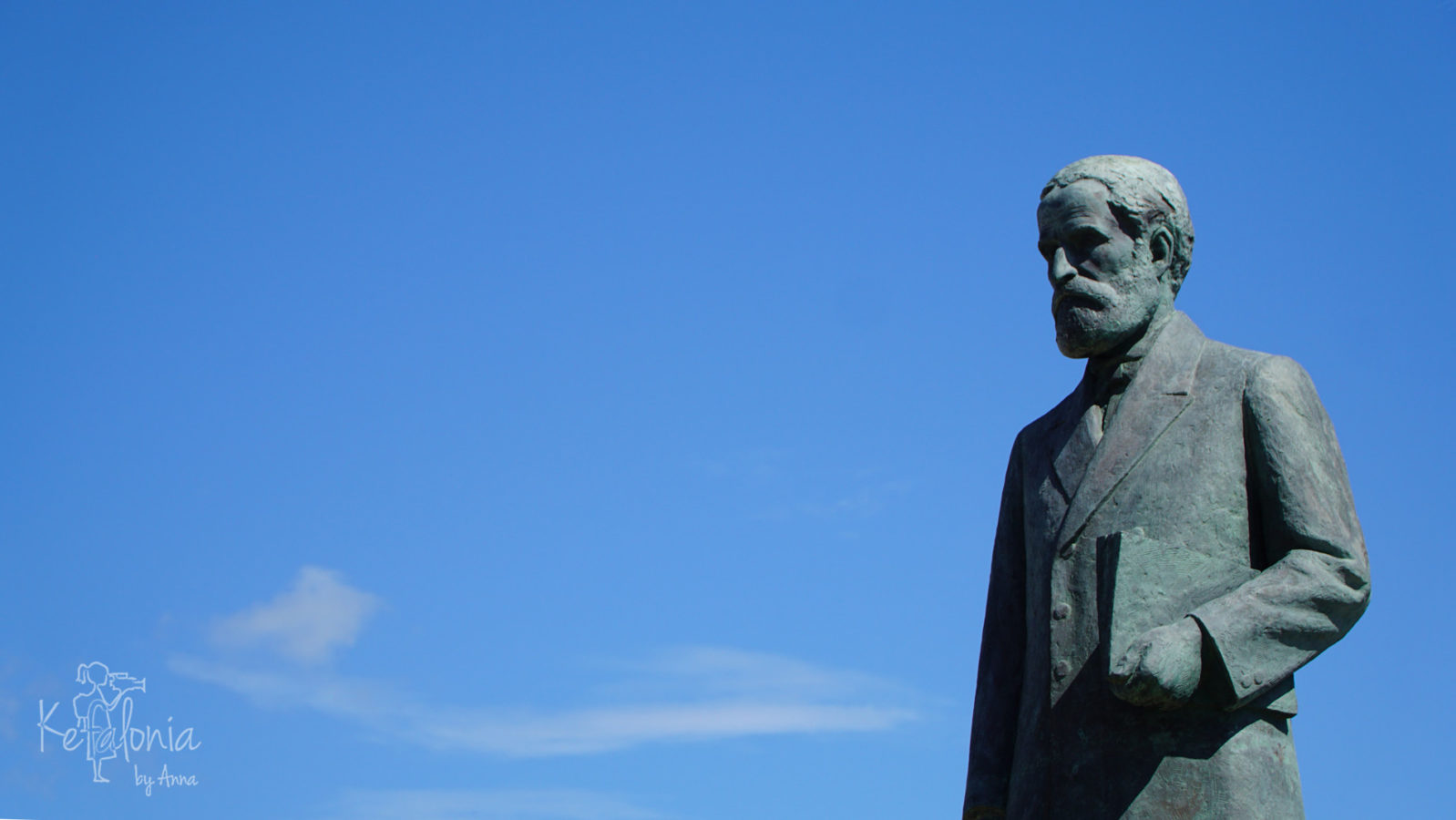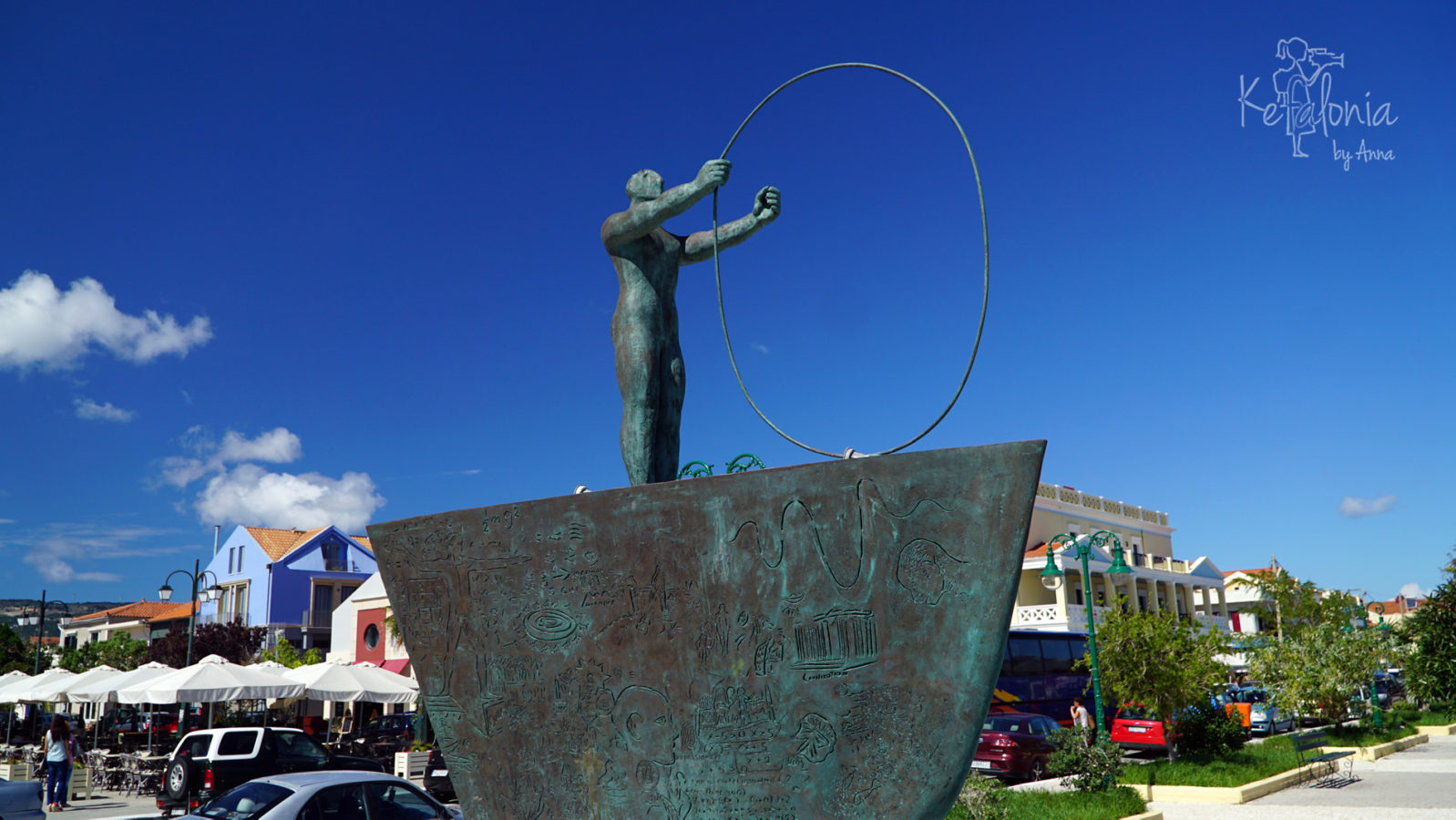Andreas Laskaratos was a great writer and poet known for his satire and lyrical texts. His statue adorns the port of Lixouri gazing the city.
Andreas Laskaratos was born in 1811 in Lixouri and lived until 1901. He studied law but practised it only for a few years. He was a great writer and poet known for his satire and lyrical texts. For many years, he was publishing the newspaper Lychnos as well as other sarcastic newspapers through which he expressed his strong disapproval of the immorality, injustice and hypocrisy of his time. He was often opposed to politicians and their inadequacy, while he rejected any religious prejudices and beliefs. The Church excommunicated him after renouncing his controversial work The Mysteries of Kefalonia (first published in 1856) and because of that he lived in Zakynthos, in London and many years later in Argostoli.
Having been Andreas Kalvos’ student and having met Dionisios Solomos, two of the most significant Greek poets of all time, Laskaratos could not stay unaffected by their great personalities. What is very common to him is that he wrote in the local dialect, carrying the vernacular that characterized the local people of that time. In his writings, we find simple truths about the human personality as well as about everyday life.


Today, his works are read again and again and enjoy the recognition they deserve, while his texts are adapted into theatrical texts, giving moments of laughter to the spectators. He is famous for establishing the caustic satirical style of writing and he is recognized for being a nonconformist throughout his life.
Laskaratos’ statue stands at Lixouri port facing the town of Lixouri with its back turned to Argostoli, strengthening the “eternal controversy” between the two cities and their residents. Very close one can found the naval statue of the town.
In his autobiography Reflections, which is available in English, you could read about his uncompromising and controversial beliefs. You can buy the book online.
For more information about Laskaratos’ works and life, you may visit Korgialeneios Library in Argostoli or Iakovateios Library in Lixouri.
